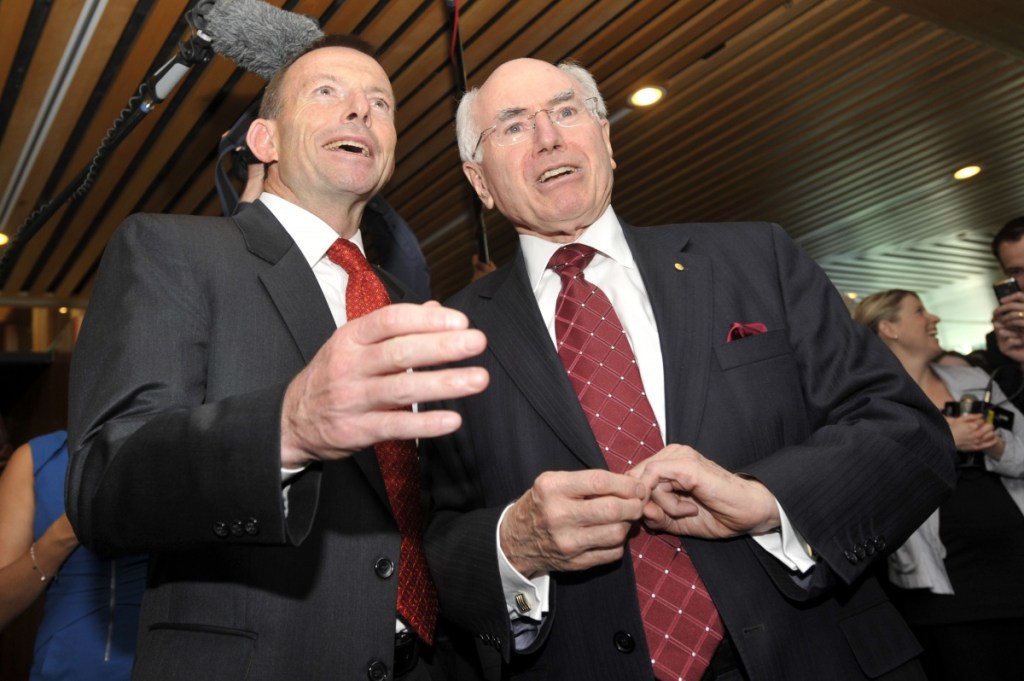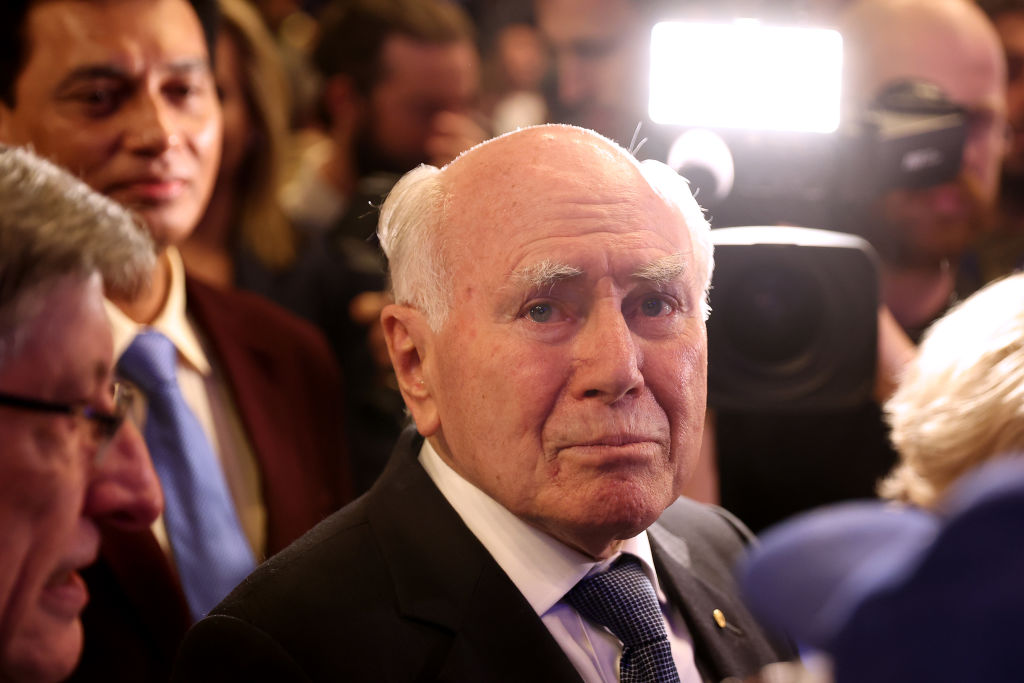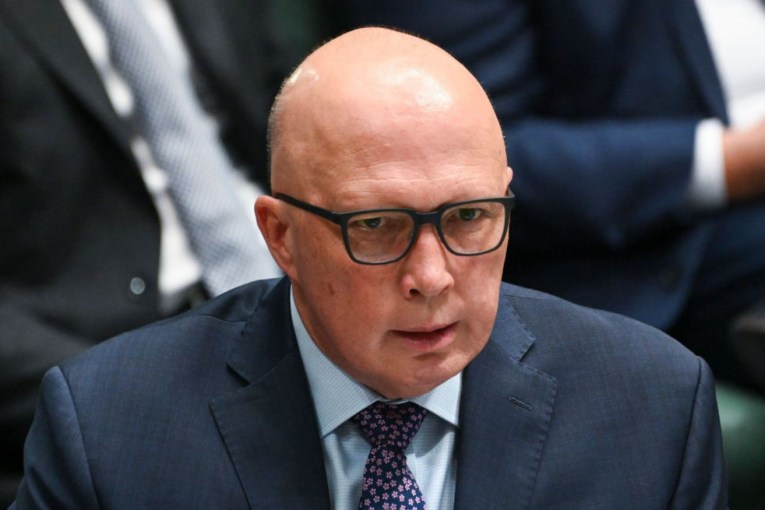Australia’s ex-prime ministers can’t stay out of the spotlight


Former PMs Scott Morrison and Boris Johnson are welcomed by Israel's UN representative Danny Danon. Photo: X (Danny Danon)
Australia’s former leaders have propelled themselves back into the spotlight, with Scott Morrison touring Israel, John Howard railing against multiculturalism and Tony Abbott maligning climate change, all in less than a week.
Morrison’s trip to Israel, alongside former British prime minister Boris Johnson, makes him the first Australian politician to visit the country since Hamas’s deadly attack on October 7 and reaffirms his long-held support for the Jewish state.
In a statement, Morrison said the visit, on behalf of the former Israeli ambassador to the United Nations, was to demonstrate solidarity with the people and state of Israel, and Jewish people around the world.
“It is an opportunity to understand first hand what is occurring on the ground, honour those who have been lost, show support to those who have suffered and are now engaged in this terrible conflict and discuss how to move forward,” Morrison said.
Early this month, Abbott and Howard denied climate science and took issues with multiculturalism, respectively, at a conservative forum in London.
Words matter
Abbott said human-caused climate change was “ahistorical and utterly implausible,” and pointed to periods of cooling and warming throughout history as his proof of climate hysteria.
His denial of the realities of climate change isn’t a surprise, given his political policies and previous commentary, but his commitment to the bit defies science, common sense and the views of the Australian public.
Since 2015, most Australians have agreed that global warming is a serious and pressing problem, and steps should be taken towards solving it even if it involves significant costs.
Scientists first theorised that carbon emissions could change the climate on a global scale in 1896 and by the 1970s, even Exxon-Mobil’s scientists knew the effects that burning fossil fuels has on the planet, even if the company publicly denied the science.
More than 99 per cent of climate research agrees that carbon emissions from human sources are causing climate change at an alarming rate, and the risks for biodiversity, humanity and the planet are cataclysmic if left unchecked.

John Howard and Tony Abbott appeared at the Alliance for Responsible Citizenship forum in London.
Christian Downie, associate professor from ANU’s School of Regulation and Global Governance, said elites and political leaders shape public opinion.
“What they say matters,” he said.
“When political leaders cast doubt on the science of climate change and deny the need for ambitious climate policies, not only do they set back efforts in Australia and beyond to reduce carbon pollution, but they undermine trust in science as well.”
Abbott now sits on the board of Fox News, a pivotal spoke in one of the world’s most powerful and far-reaching media empires.
One Australia
Howard’s comments at the same right-wing conference as Abbott also proved controversial, but also shouldn’t come as a surprise considering his political career.
His party’s One Australia policy — released in 1988 when Howard was opposition leader — called for an end to multiculturalism, the reduction in the rate of Asian immigration and opposed a treaty with Indigenous Australians.
Howard’s world view hasn’t shifted greatly since then either.
“The objection I have to multiculturalism is that multiculturalism is in effect saying that it is impossible to have an Australian ethos, that it is impossible to have a common Australian culture,” he said in 1989.
“We have to pretend that we are a federation of cultures and that we’ve got a bit from every part of the world. I think that is hopeless.”

Former prime minister John Howard’s views on multiculturalism have remained unchanged for decades. Photo: Getty
A few weeks ago, he spoke on “the terrible trouble” of multiculturalism, repeating his 34-year-old words almost verbatim.
“I take the view that if people want to emigrate to a country, then they adopt the values and practices of that country,” Howard said.
“In return, they’re entitled to have the host citizenry respect their culture without trying to create some kind of federation of tribes and culture.”
During his spell as prime minister from 1996 to 2007, Howard initiated a hard-line stance against asylum seekers, labelling them ‘boat people’, and initiated the Pacific Solution, a policy of offshore detention that saw some of the world’s poorest and most vulnerable people subjected to abject abuse.
Australians overwhelmingly agree that multiculturalism is good for the country and that accepting immigrants from other countries makes Australia stronger, although they do agree that immigrants should adopt the country’s values.








